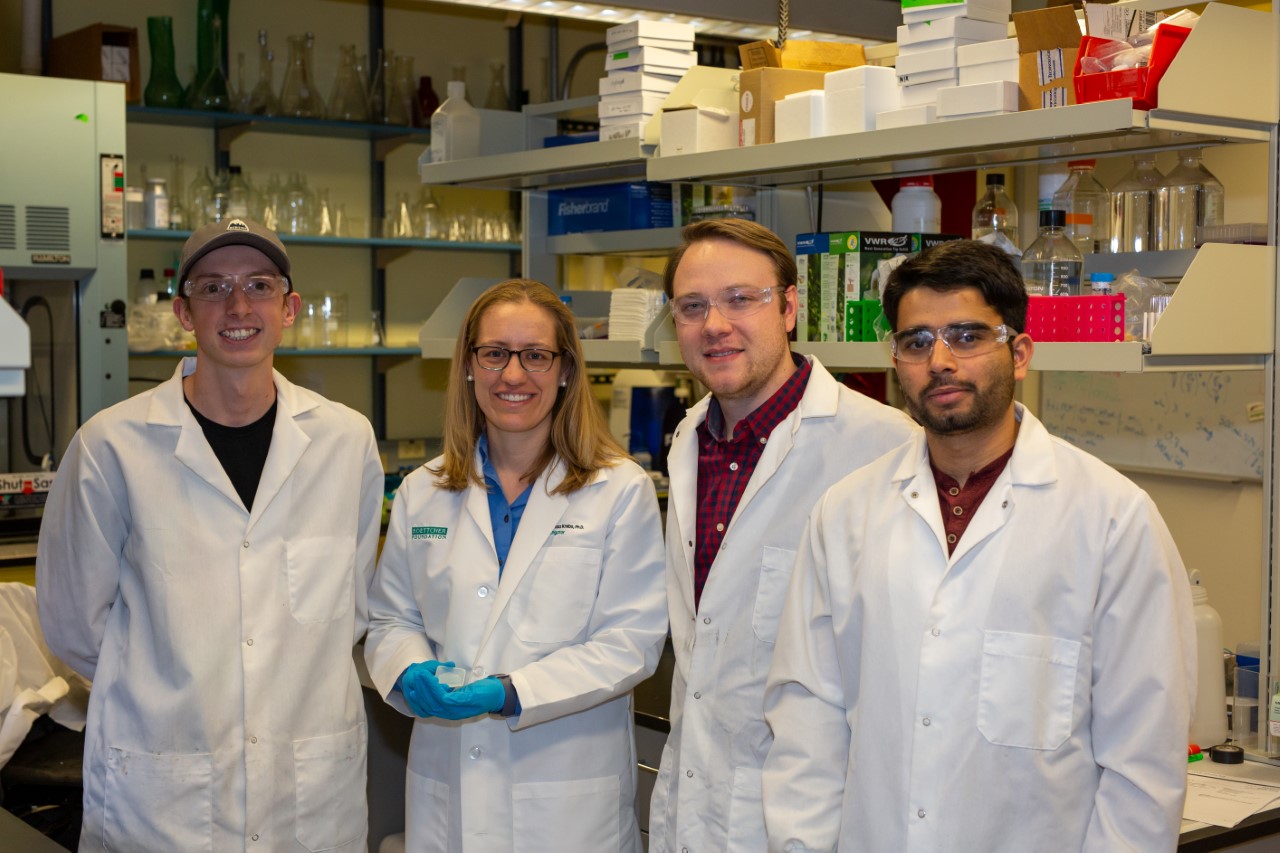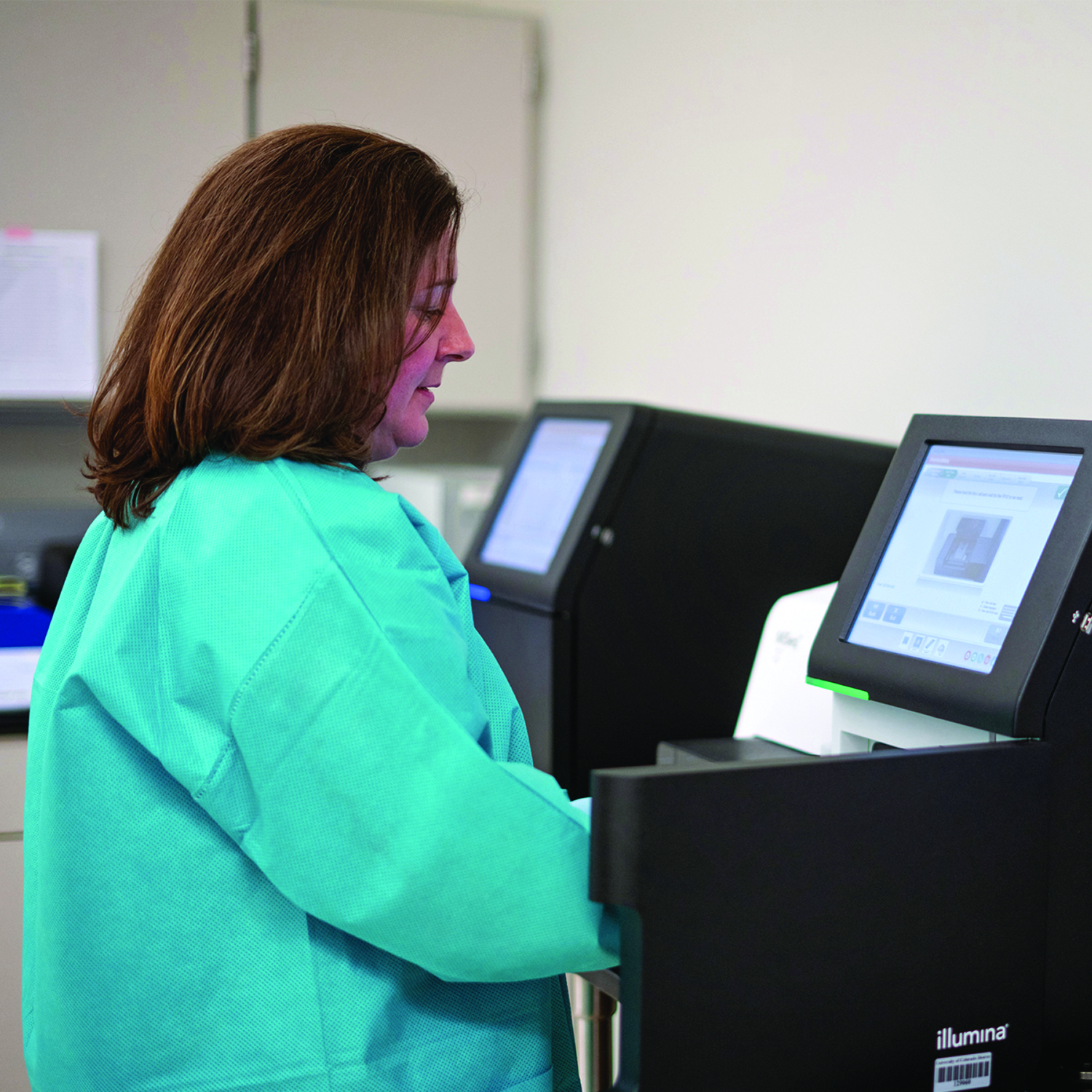Cutting-Edge Health Innovations Showcased at Fitzsimons Bioscience Event
Dive into the forefront of bioscience at the Fitzsimons Innovation Community Showcase, where groundbreaking advancements redefine health and life sciences.
Margaret Jackson //December 14, 2023//


Cutting-Edge Health Innovations Showcased at Fitzsimons Bioscience Event
Dive into the forefront of bioscience at the Fitzsimons Innovation Community Showcase, where groundbreaking advancements redefine health and life sciences.
Margaret Jackson //December 14, 2023//
Bioscience companies from across the region showcased their advancements and discoveries on Sept. 27 at an event held at the Benson Hotel and Faculty Club and hosted by Fitzsimons Innovation Community and Aimco.
Attendees heard from 10 of the more than 80 visionary biotech and life sciences companies in the Fitzsimons Innovation Community ecosystem that are defining the future of health and care with innovative scientific discoveries and research to cure diseases, save lives and improve patient care.
Read on to learn about some of the scientific breakthroughs presented.
GelSana Therapeutics Inc.
Every 20 seconds, a diabetic patient loses a limb to an ulcer that would not heal, but a new wound-care treatment has the capability of improving that outcome. GelSana Therapeutics developed a highly elastic hydrogel wound dressing that reduces inflammation at the site of diabetic ulcers and accelerates healing of wounds.
“The issue is that the current standard of care is just not addressing the overactive and underlying inflammation these patients experience, so the wounds aren’t closing,” said Melissa Krebs, GelSana’s founder and CEO.
The company developed a polymer hydrogel material that is inherently anti-inflammatory to address the issue.
The company, which licensed the intellectual property from the Colorado School of Mines, has finalized the formulation and packaging of its first product, and manufacturing is underway and headed toward registration with the Food and Drug Administration later this year.
The company, which has raised $2.1 million, has completed key animal studies that demonstrate the ability of its formulation to heal diabetic wounds in mice and has conducted trials against competitor products, which found improved healing with its material.
In addition to diabetic wound care, the company sees opportunities on the battlefield to treat scars and burns and in veterinary medicine.
Vona Oncology
Vona Oncology is developing targeted therapeutics to treat aggressive cancers such as triple-negative breast cancer, ovarian cancer and melanoma.
It’s developing a small molecule that’s effective at low doses with little toxicity detected in preclinical studies. Early results are promising. VDX-111 reduced tumors in mice by 80% with minimal side effects. VDX-111 does not kill normal cells, and the more aggressive the cancer, the better the drug works.
It is expected to enter clinical trials in the next two years. The company has identified a manufacturing partner in Dallas that will make the drug.
Vona, the Icelandic word for hope, does not expect to be the next Pfizer or Merck, so its exit plan is to be acquired, said Jim Lambert, the company’s president and CEO.
With 60% of breast cancers not addressed by current standards of care, the $4 billion market is growing at a compound annual growth rate of 20%.
“There’s a lot of opportunities in this space for companies like Vona Oncology to succeed,” Lambert said.
STAQ Pharma
STAQ Pharma, which makes compounded medications for hospitals, surgery centers and physician-led practices, is known for addressing critical drug shortages in the United States.
Drug shortages are a chronic issue in the United States, with more than 300 drug products difficult to procure, according to the American Society of Health System Pharmacists. STAQ addresses the problem with its flexible production facilities that ship to more than 400 hospitals and patient care centers every day.
Among the drugs in short supply is abuterol, one of the most essential medications for pediatric patients. Through its partnership with Children’s Hospital Colorado, STAQ has been able to supply and maintain abuterol for children’s hospitals.
The company, which has raised $70 million, partners with companies and institutions to develop drug products for immediate production and sale or investigation and research. Children’s Hospital Colorado Center for Innovation, for example, uses STAQ’s compounded medications and prefilled syringes as part of its forward-thinking pediatric care.
Most of the company’s products will be used in emergency rooms, operating rooms or intensive care units.
ClinImmune Cell & Gene Therapy and RheumaGen
RheumaGen is using technology from ClinImmune Cell & Gene Therapy to develop treatments with the potential to cure rheumatoid arthritis and other autoimmune diseases such as multiple sclerosis, juvenile diabetes and celiac disease.
RheumaGen’s innovation is personal to two of the co-founders — Brian Hart and Ryan Hart — whose mother has suffered from RA for more than 25 years.
“These patients are desperate for help, and we must do more for them and their families,” RheumaGen CEO Richard Freed said. “We believe it is time to revolutionize the field of autoimmunity. We’re not interested in incremental improvements. We seek cures. We seek remissions. We seek to free these patients from the enormous burdens they carry.”
 Margaret Jackson is an award-winning journalist who spent nearly 25 years in the newspaper industry, including seven years as a business reporter for The Denver Post covering residential and commercial real estate. She can be reached at [email protected].
Margaret Jackson is an award-winning journalist who spent nearly 25 years in the newspaper industry, including seven years as a business reporter for The Denver Post covering residential and commercial real estate. She can be reached at [email protected].




























